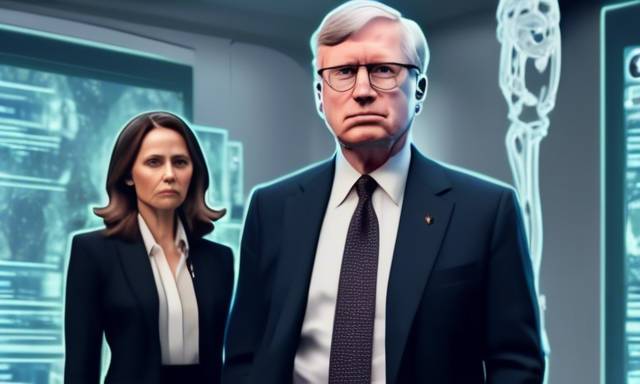TRON CEO Justin Sun Criticizes Coinbase for Ignoring Proof of Reserves: What It Means for the Crypto Market
Hey there! So, have you heard about the latest buzz in the crypto world? I read this interesting piece where TRON CEO Justin Sun calls out Coinbase for not showing their proof of reserves. It’s kind of like the equivalent of a magic trick where the magician never actually reveals how they pull off the illusion. You’d think such transparency is no big deal, right? But oh, it definitely is. Sit back, relax, and let’s dive into why this really matters, especially if you’ve got some skin in the crypto game.
What Exactly is Proof of Reserves?
Imagine you’re at a fancy restaurant, and you see an elaborate menu. The prices are steep, but there’s no way to check the kitchen to see if they actually have all those exotic ingredients. Now, wouldn’t you feel reassured if the chef showed you a fully stocked pantry? That’s what proof of reserves is in the crypto world—it’s a practice where exchanges verify they actually hold users’ funds. It’s like the chef showing off a pantry brimming with fancy ingredients you’re paying for.
Why Justin Sun’s Critique Matters
You might wonder, "Okay, so what’s the big deal?" Well, Justin Sun isn’t just any other talking head in the crypto universe. He’s the CEO of TRON, a major blockchain platform. His voice carries weight. When he points out something fishy, people listen.
Justin Sun’s criticism brings some important issues into the spotlight:
- Transparency: If exchanges like Coinbase don’t prove they hold the actual funds they claim, that’s a red flag. It’s akin to putting your money in a bank without knowing if they actually have a vault full of cash.
- Trust: This industry thrives on trust. Would you leave your prized baseball cards with a stranger who refuses to show you their safe? Exactly.
- Security: Cyber-attacks and hacks are rampant. Proof of reserves adds an extra layer of security, ensuring exchanges are less susceptible to fraud.
The Market’s Psychological Game
Crypto investors, like anyone else, are highly influenced by trust and transparency. When big names like Justin Sun question these attributes in platforms like Coinbase, it can lead to a ripple effect.
Remember, it’s not just about the numbers and charts—there’s a big psychological component at play here. Trust boosts investor confidence and the overall stability of the market. Take that away, and the whole house of cards becomes shaky.
Personal Anecdote: My First Crypto Investment
Let me share a quick story. When I first got into crypto, I was obsessed with doing homework—extra careful. I went nuts reading whitepapers, forums, and finding the most “trustworthy” exchanges. Back then, proof of reserves wasn’t even something people talked about. As a newbie, I was leaning heavily on the "trust us" mantra from these platforms.
One day, I read about an exchange facing financial trouble, and it rattled me. If they had shown proof of reserves, I’d have slept better, knowing my investment was backed by actual assets. It’s like buying a car after seeing its service record versus taking the dealer’s word for it.
Why Should You Care?
At the end of the day, why does all this matter to you, a potential investor? Here are some quick takeaways:
- Protect Your Investment: Knowing that an exchange holds actual assets protecting your funds is like having a safety net.
- Enhanced Security: Due diligence can make your investments less susceptible to fraud and hacking.
- Market Stability: Transparent operations within major platforms lead to a more stable market, benefiting everyone involved.
What’s Next?
As Coinbase and other exchanges navigate the choppy waters of regulatory scrutiny and market pressure, their transparency—or lack thereof—will increasingly matter. This might even pressure more platforms to show their cards, leading to a more transparent industry overall. Wouldn’t that be something?
A Question to Ponder
What’s your take on the need for exchanges to provide proof of reserves? Do you think this could be a game-changer for trust in the crypto world?
Feel free to share your thoughts and let’s keep this conversation rolling. After all, in this ever-evolving world of crypto, staying informed and questioning the status quo isn’t just smart—it’s essential.





 By
By
 By
By
 By
By

